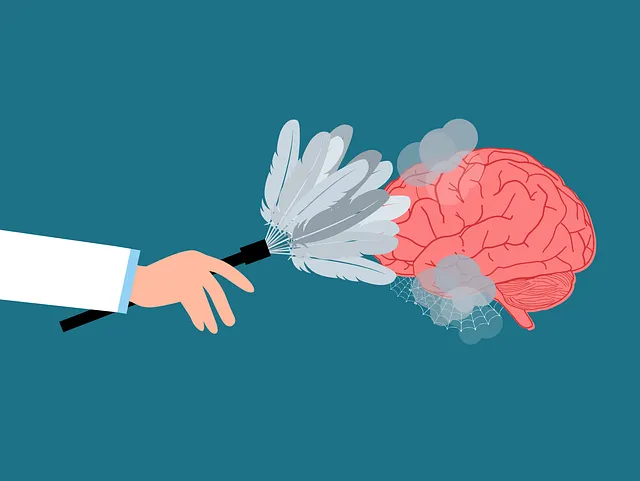Mental wellness coaching, offered by organizations like Kaiser in Denver, is a personalized approach to improving mental health. Unlike traditional therapy focusing on specific disorders, coaching promotes self-discovery and empowerment through goal setting, stress management, and resilience development. Kaiser's trained therapists use advanced risk assessment tools and incorporate mindfulness meditation for client safety and effectiveness. Coaches support individuals with evidence-based practices tailored to their needs, offering guidance for work-life balance, communication strategies, and mental health outcomes. When comparing therapists and coaches in Denver, understanding their distinct roles—therapists treating diagnosed disorders, coaches providing general wellness guidance—is crucial for choosing the right support.
“Uncovering the Power of Mental Wellness Coaching: A Comprehensive Guide
In today’s fast-paced world, prioritizing mental wellness is paramount. This article delves into the transformative realm of mental wellness coaching, offering a unique approach to personal growth. We explore how this practice differs from traditional therapy, focusing on its benefits in fostering resilience and self-care. Furthermore, we dissect the development of effective coaching programs, emphasizing customization and evidence-based practices. For those seeking support, we examine Kaiser’s therapist offerings in Denver, providing insights to help individuals make informed choices.”
- Understanding Mental Wellness Coaching
- – Define mental wellness coaching and its purpose
- – Differentiate between therapists and coaches
Understanding Mental Wellness Coaching

Mental wellness coaching involves guiding individuals to improve their mental health and overall well-being. It’s a personalized process that helps people set goals, overcome challenges, and develop strategies for stress management and resilience. Unlike traditional therapy, which often focuses on treating specific disorders, coaching promotes self-discovery and empowerment. Coaches work collaboratively with clients to enhance Mental Health Awareness, fostering skills in emotional regulation, thought management, and positive lifestyle choices.
In the competitive landscape of healthcare services, organizations like Kaiser, known for their comprehensive care in Denver, offer excellent resources for mental wellness coaching. Their therapists are trained professionals equipped with advanced Risk Assessment for Mental Health Professionals tools to ensure client safety and effectiveness. Additionally, techniques such as Mindfulness Meditation are increasingly integrated into these programs, providing clients with valuable tools for managing stress and improving overall mental wellness.
– Define mental wellness coaching and its purpose

Mental wellness coaching is a supportive and proactive approach to enhancing an individual’s overall mental health and well-being. It involves a professional coach working closely with clients to help them navigate and overcome various challenges related to their emotional and psychological state. The primary purpose of this coaching program is to empower individuals to take control of their mental health, fostering self-awareness and resilience. Through tailored strategies, the coach guides clients in understanding their unique emotional healing processes and learning effective coping mechanisms.
In today’s fast-paced world, where stress and anxiety are prevalent, such programs offer a valuable resource for those seeking to improve their mental wellness. Similar to how Kaiser’s therapists in Denver provide specialized care, coaches focus on individual needs, promoting better mental health outcomes. By combining evidence-based practices with personalized support, these coaching sessions can be highly effective, especially when addressing issues like stress management, work-life balance, and improving communication strategies—crucial aspects often highlighted in the context of risk assessment for mental health professionals.
– Differentiate between therapists and coaches

In the context of mental wellness support, therapists and coaches play distinct roles. Therapists are trained professionals who provide psychotherapy and counseling services, focusing on diagnosing and treating mental health disorders. They offer evidence-based practices such as cognitive-behavioral therapy (CBT) to help individuals process and overcome specific psychological challenges. On the other hand, mental wellness coaches focus on empowering clients to make positive changes in their lives without necessarily diagnosing or treating mental health conditions. Coaches use techniques like goal setting, motivation, and accountability to support clients in achieving their personal and professional well-being goals.
When considering options for mental wellness support in Denver, such as those offered by Kaiser, it’s important to understand these distinctions. If you’re seeking specialized treatment for a diagnosed condition, a therapist might be the better choice. However, if your focus is on general mental wellness, coaching programs can provide valuable guidance. The Mental Wellness Podcast Series Production and Mental Wellness Journaling Exercise Guidance can offer valuable insights, while Mental Health Education Programs Design ensures comprehensive knowledge to foster long-term well-being.
Mental wellness coaching programs, such as those offered by organizations like Kaiser in Denver, play a vital role in supporting individuals’ mental health journeys. By differentiating from traditional therapy through focus on skill-building and personal empowerment, coaches provide a unique and effective approach to enhancing well-being. Unlike therapists who delve into past experiences, coaches help clients navigate challenges and foster resilience through present-day strategies. With the increasing demand for accessible mental wellness support, these programs have the potential to revolutionize care, ensuring folks in Denver and beyond can access resources tailored to their needs.






